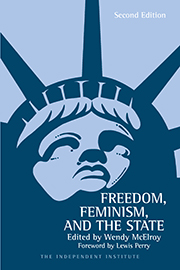An Aug. 29 New York Times headline, ”New U.S. Sexual Misconduct Rules Bolster Rights of Accused and Protect Colleges,” foreshadows a controversy that is headed to Congress, probably after the midterms. A draft of proposed changes to Title IX policy leaked from the Department of Education (DOE) to the NYT, which described the draft as narrowing “the definition of sexual harassment, holding schools accountable only for formal complaints filed through proper authorities and for conduct said to have occurred on their campuses. They would also establish a higher legal standard to determine whether schools improperly addressed complaints.”
The final language of the changes may differ upon release in a few weeks, but the thrust is to stiffen legal protections for an accused through more rigorous due process and to provide relief to lawsuit-prone schools that now function as police, judge and jury in assault investigations.
DOE Secretary Betsy DeVos has promised to “correct” Obama-era campus policies, and the proposal constitutes her first comprehensive overhaul. The old policies instituted strict procedures on how schools must hold campus misconduct hearings, including lowering the legal protections for an accused; there was no right to cross-examine an accuser or witnesses, for example. DeVos referred to those policies as “federal overreach” that established quasi-judicial systems without judicial protections. Non-compliant schools were threatened with the possibility of withholding federal funds. Compliant schools were vulnerable to lawsuits from those who were found “guilty.”
The DeVos DOE wants to move back toward the 1972 law, with a comparatively limited definition of “sexual harassment.” The Obama DOE defined it as “unwelcome sexual advances, requests for sexual favors, and other verbal, nonverbal, or physical conduct of a sexual nature.” In short, a hostile environment. DeVos prefers the reigning Supreme Court definition of “unwelcome conduct on the basis of sex that is so severe, pervasive and objectively offensive that it denies a person access to the school’s education program or activity.” That is quite a difference.
With reference to campus protocol, DeVos previously has endorsed the use of mediation to resolve sexual misconduct complaints. An accuser and an accused would exchange evidence and, presumably, question each other about it. Schools would have more discretion in handling complaints, and they would be legally responsible only for investigating formal ones.
Victims’ and women’s rights advocates resoundingly applaud the Obama model which is accuser oriented with close to automatic credibility offered to an accuser. Predictably, the same voices decry the DeVos plan. Jess Davidson, the executive director of End Rape on Campus, calls DeVos’s policies “a tacit endorsement of making campuses a safer place to commit sexual assault, rather than a safer place to learn free from violence.”
Those are the battlegrounds, with differing perspectives. For the DeVos camp, it is due process for the accused versus bias favoring the accuser. For the status quo, it is victims — that is, accusers—versus sex abusers—that is, accuseds. For several years, federal agencies and Congress have sided strongly with the “victims.” Victim advocates in the Senate, such as Sens. Kirsten Gillibrand (D-N.Y.) and Claire McCaskill (D-Mo.), have been powerful voices. But factors mitigate against history repeating itself.
First and foremost, it is now Trump’s DOE, not Obama’s. It reflects conservative policies, not progressive ones.
Second, court rulings and legal settlements are pressuring campus politics. A Sept. 7 ruling of the Sixth Circuit Court of Appeal, for example, favors DeVos. According to the Foundation for Individual Rights in Education (FIRE), the court “issued the strongest judicial opinion to date in support of the right to cross-examination in campus judicial proceedings that turn on credibility. The decision is also remarkable for...allowing students the active participation of an advisor, which would provide effective cross-examination while avoiding the potential problems with having the parties personally cross-examine one another.”
The opinion also addressed an issue that haunts sexual misconduct hearings: lawsuits brought by accused students who cry “foul!” FIRE noted, “The court allowed John Doe’s Title IX sex discrimination claim against the university to proceed, noting not only that the university was under tremendous pressure due to a Title IX investigation by the Office for Civil Rights, but also that the appeals board exclusively credited the testimony of Jane Roe’s female witnesses while rejecting all the testimony of John Doe’s male witnesses.” Last year, a Washington Post headline read, “Expelled for sex assault, young men are filing more lawsuits to clear their names.” The article stated, “SAVE Services, a Maryland-based group that seeks to...protect the rights of the accused in sexual-assault cases, found in a survey that about 70 percent of these types of lawsuits filed against colleges from 1993 to 2015 ended in settlements or rulings that at least partially benefited the plaintiffs.”
Moreover, a string of high-profile rape-accusation cases have proven to be false. The tipping point was probably the 2014 “gang rape” at the University of Virginia (UVa), which a Rolling Stone article catapulted into a national sensation. One problem: the rape never happened. Lawsuits ensued, with Rolling Stone eventually paying settlements that included $3 million to UVa associate dean Nicole Eramo and $1.6 million to a fraternity. The true victim of the unsavory matter, however, was the credibility of rape accusers and anti-rape activists. A Delaware Online article (Dec. 9, 2014) by Margaret Carlson bore the headline “Rolling Stone may have crushed anti-rape bill,” which referred to a proposed anti-rape measure in the military.
Recent polls indicate a shift in public opinion, which used to favor aggressive prosecution. The Federalist (Sept. 27, 2017) reported a widely-circulated 2017 poll from the Bucknell Institute for Public Policy, which asked for reaction to the statement, “Students accused of crimes on college campuses should receive the same civil liberties protections from their colleges that they receive in the court system.” Sixty-five percent of Democrats, 77 percent of Republicans, and 67 percent of Independents agreed. Sixty-one percent of respondents thought that accused students should have the right to cross-examine accusers. And 71 percent thought accused students should be heard under the “clear and convincing” standard of evidence (highly and substantially more probably true than not) rather than the “preponderance of the evidence” one (51 percent probably true) currently used.
Unlike Obama’s policies, once public comment has ended, DeVos’s new rules will enjoy the force of law, even without an act of Congress. Change in how sexual misconduct is handled on campus seems inevitable. Controversy is also inevitable. Protesters on campus will carry signs proclaiming Trump and the DOE to be rape apologists, rape supporters. In Congress, champions of victims and women will cry out. But the new rules seem to be a fait accompli.










